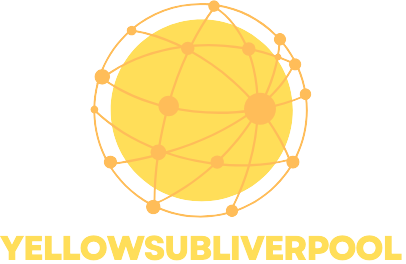Table of Contents
ToggleIn today’s fast-paced world, the quest for meaningful work has become a priority for many. People are no longer satisfied with just a paycheck; they crave a sense of purpose and fulfillment in their careers. This shift in mindset reflects a deeper understanding of what it means to be truly engaged at work, leading to increased productivity and overall happiness.
Meaningful work goes beyond traditional job roles. It encompasses the impact one makes, the connections formed, and the personal growth experienced along the way. As individuals seek roles that resonate with their values and passions, organizations are also recognizing the importance of fostering environments where employees feel valued and inspired. This article explores the essence of meaningful work and how it can transform both individual lives and workplace dynamics.
Understanding Meaningful Work
Meaningful work refers to jobs that provide individuals with purpose and fulfillment beyond financial compensation. This concept has gained traction as people increasingly prioritize their well-being and overall life satisfaction.
Definition of Meaningful Work
Meaningful work signifies contributions that resonate personally and socially. It involves:
- Purpose: Engaging in activities that align with one’s values and passions.
- Impact: Making a difference in the lives of others or the community at large.
- Growth: Pursuing opportunities for personal and professional development.
- Connection: Building relationships that foster collaboration and camaraderie.
This holistic view emphasizes that work encompasses not just tasks but also emotional and social elements.
Importance of Meaningful Work
Meaningful work carries numerous benefits for individuals and organizations. These include:
- Increased Engagement: Employees who find purpose in their jobs exhibit higher levels of motivation and involvement.
- Improved Productivity: A sense of meaning often translates into enhanced performance and increased output.
- Greater Happiness: Fulfillment from work leads to overall life satisfaction and emotional well-being.
- Less Turnover: Employees with meaningful work experiences tend to remain loyal, reducing recruitment and training costs for companies.
- Better Workplace Culture: Organizations that promote meaningful work foster an environment of collaboration and support, attracting top talent.
By valuing meaningful work, organizations can enhance employee experiences while driving positive workplace dynamics.
Factors Contributing to Meaningful Work

Multiple factors shape the perception of meaningful work. Understanding these elements can help organizations cultivate a purpose-driven atmosphere that enhances employee satisfaction and performance.
Personal Values and Beliefs
Personal values and beliefs play a crucial role in defining meaningful work. Individuals who align their job responsibilities with their core principles often experience greater engagement. This alignment fosters a sense of purpose, motivating employees to strive for excellence. For example, a professional committed to environmental sustainability finds meaning in a role within a green technology company. Personal values also influence career choices; individuals pursuing jobs that reflect their ethical beliefs usually report higher job satisfaction.
Workplace Environment and Culture
Workplace environment and culture significantly impact the perception of meaningful work. An inclusive culture that promotes collaboration and respect fosters connection among employees. Positive reinforcement and recognition further enhance this climate, validating individual contributions. For instance, organizations that encourage open communication and provide growth opportunities cultivate a sense of belonging. When employees feel valued and supported, they’re more likely to find meaning in their work, driving higher levels of productivity and morale.
The Impact of Meaningful Work on Individuals
Meaningful work significantly affects individuals, enhancing various aspects of their lives. It influences job satisfaction and motivation while providing substantial mental health benefits.
Job Satisfaction and Motivation
Job satisfaction increases when work aligns with individual values and goals. Employees engaged in meaningful tasks often experience higher motivation levels, as they find purpose in their daily responsibilities. Individuals who perceive their work as impactful report greater enthusiasm and commitment to their roles. According to a study by Gallup, employees who feel their work is meaningful exhibit a 64% increased likelihood of feeling engaged at work (Gallup, 2022). Organizations that foster a sense of purpose not only retain talent but also cultivate an environment where employees strive for excellence.
Mental Health Benefits
Meaningful work contributes positively to mental health. Workers who find significance in their tasks experience lower stress levels and reduced feelings of burnout. A report from the World Health Organization states that having a sense of purpose increases resilience, leading to improved overall well-being (WHO, 2021). Engaging in fulfilling work enhances self-esteem and encourages personal development, fostering a supportive network that benefits both employees and organizations. As individuals connect their roles to broader societal contributions, they develop a more robust sense of identity and fulfillment.
Meaningful Work in Different Professions
Meaningful work manifests in various professions, creating distinct experiences depending on the sector. Different industries illustrate unique pathways to fulfillment, contributing to employee satisfaction and engagement.
Meaningful Work in Nonprofit Organizations
Meaningful work in nonprofit organizations often revolves around mission-driven activities that align closely with personal values. Employees in these sectors seek to address social issues, improve communities, and promote far-reaching change. The sense of purpose derived from contributing to causes such as education, healthcare, or environmental sustainability enhances job satisfaction.
Engagement increases when employees see the direct impact of their efforts. A study by the Stanford Social Innovation Review indicates that nonprofit employees report higher overall job satisfaction compared to their for-profit counterparts. Recognition within the community fosters belonging and motivates individuals to pursue meaningful initiatives even when financial compensation is lower.
Meaningful Work in Corporate Settings
Meaningful work in corporate settings hinges on aligning individual roles with the company’s mission and values. Organizations that emphasize corporate social responsibility and employee empowerment create environments where individuals can pursue meaningful projects. Purpose-driven work enhances commitment, as employees feel their efforts contribute to larger corporate goals.
Data from Deloitte indicates that 87% of millennials consider it essential for their employer to be socially responsible. When corporations invest in employee development, community involvement, and sustainable practices, they foster a culture that values meaningful work. In turn, this leads to improved employee engagement, productivity, and retention, all critical components for a thriving work environment.
Embracing meaningful work is no longer a luxury but a necessity in today’s workforce. Individuals are increasingly drawn to roles that resonate with their values and foster connections. Organizations that recognize this shift can cultivate a culture of engagement and satisfaction.
By prioritizing meaningful work, companies not only enhance employee well-being but also drive productivity and innovation. When employees feel valued and aligned with their organization’s mission, they contribute more effectively. This transformation benefits everyone involved, creating a thriving environment where purpose and fulfillment take center stage. Ultimately, meaningful work leads to a happier workforce and a more successful organization.







